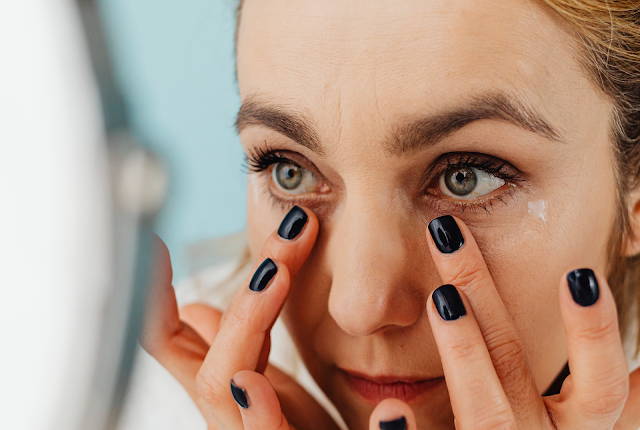Dark Circles Under The Eyes
Dark Circles Under The Eyes
Dark circles under the eyes can have a significant impact on a person’s appearance and can be perceived as a sign of fatigue, aging, or poor health. They can make a person look tired and worn out, even if they are well-rested. This can affect a person’s self-esteem and confidence, leading them to feel self-conscious about their appearance.
Dark circles can also make a person look older than they are, which can be a concern for some people. They can also make a person’s eyes appear sunken or hollow, which can make them look unwell. Dark circles can be difficult to conceal with makeup and can make a person look worse, if not applied correctly.
Overall, dark circles can have a significant impact on a person’s appearance and how they feel about themselves. It’s important to understand the underlying causes of dark circles and to take steps to address them, whether it be through lifestyle changes, treatments, or medical intervention.
Causes of Dark Circles Under The Eyes
Dark circles under the eyes can be caused by a variety of factors, including:
- Genetics – Some people are more prone to dark circles due to their genetic makeup.
- Aging – As we age, the skin under the eyes becomes thinner and more transparent, allowing blood vessels to show through more easily.
- Allergies – Allergic reactions can cause inflammation and dilate blood vessels, resulting in dark circles.
- Nasal Congestion – When the nose is congested, blood vessels in the area may become dilated, causing dark circles.
- Lack Of Sleep – Not getting enough sleep can cause the skin under the eyes to appear dark and puffy.
- Dehydration – Not drinking enough water can lead to dehydrated skin, which can appear dark and dull.
- Sun Exposure – Sun damage can cause the skin to appear darker and discolored.
- Medical Conditions – Some medical conditions, such as eczema, psoriasis, and thyroid disorders, can cause dark circles under the eyes.
- Medications – Certain medications can cause dark circles under the eyes as a side effect.
In some cases, dark circles may be a combination of these factors, and a combination of treatments may be necessary to address them.
Are Dark Circles Under The Eyes Permanent
Dark circles under the eyes are not always permanent. Depending on the underlying cause, they may be temporary or long-term.
Dark circles caused by factors like lack of sleep, allergies, or nasal congestion may improve with lifestyle changes.
Long-term dark circles from aging, genetics, or sun damage may need extensive treatments like laser therapy.
Medical conditions like eczema, psoriasis, or thyroid disorder can cause dark circles; treating the underlying condition may help.
Persistent dark circles should prompt a doctor’s visit, as they may signal an underlying health condition.
In some cases, dark circles may be permanent but with the help of treatments, they can be reduced to some extent.
Dark Circles Under The Eyes Treatment
There are several ways to treat dark circles around the eyes:
- Get Enough Sleep – Lack of sleep can cause the skin under the eyes to appear dark and puffy. Aim for 7-8 hours of sleep each night.
- Hydrate – Drink plenty of water to keep your skin hydrated and healthy.
- Use A Cold Compress – Place a cold compress or a bag of frozen vegetables on your closed eyes for a few minutes to constrict blood vessels and reduce puffiness.
- Use A Moisturizer – Apply a moisturizer to the skin under the eyes to keep it hydrated and reduce the appearance of dark circles.
- Try Over-The-Counter Creams – Eye creams that contain vitamin K and retinol can help to reduce the appearance of dark circles.
- Sun Protection – Protect your eyes and the skin around them from the sun by wearing sunglasses and sunscreen.
- Reduce Salt Intake – Excess salt intake can cause water retention and puffiness around the eyes.
- Consult With A Dermatologist – If you have dark circles that are persistent, it’s best to consult with a dermatologist who can provide you with a personalized treatment plan.
Please note that some dark circles might be a symptom of an underlying health condition, so it’s important to consult with a doctor if you have any concerns.

